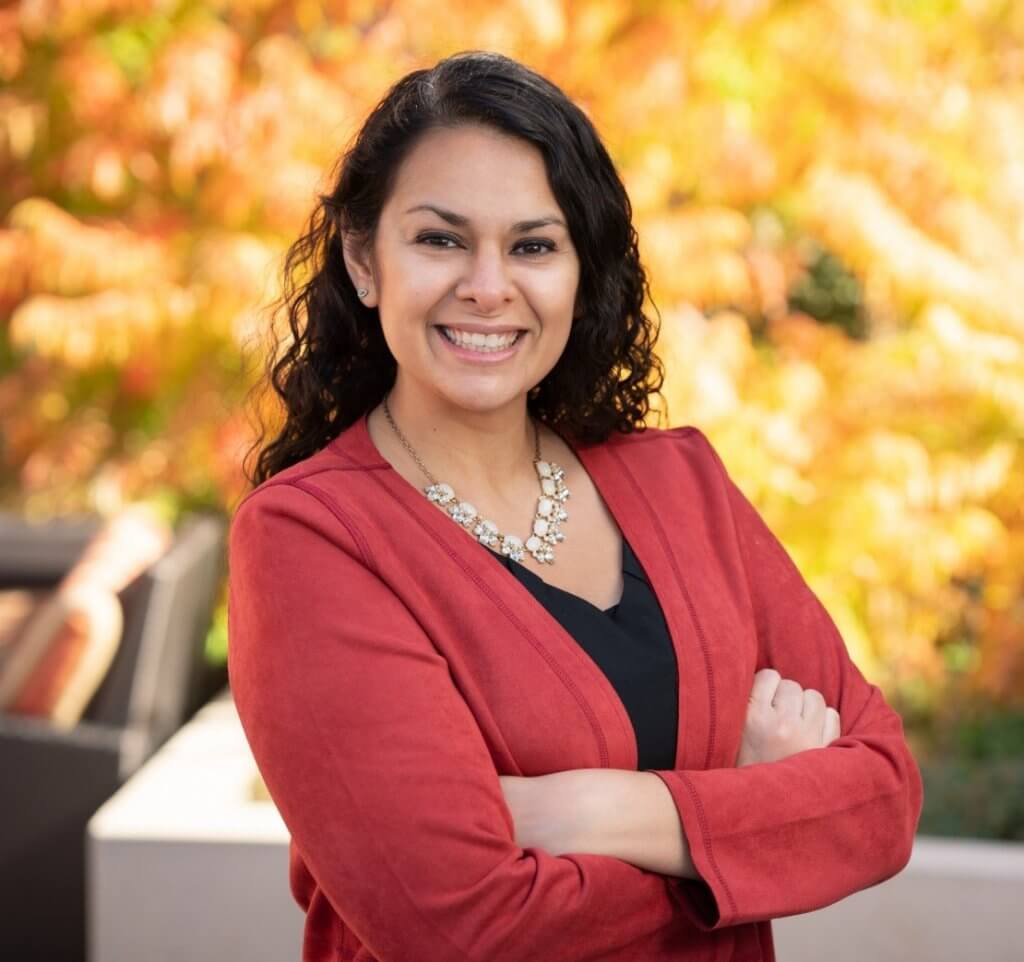The connection between a researcher’s biography and area of study is not always obvious. A young scientist may discover an intellectual fascination with immunology, for example, despite not having known anyone with an immunological disorder.
For Dana-Farber’s Narjust Duma, MD, however, research is not just a response to her life experiences. It’s a way to ensure that the bias and isolation she endured as a young Latina in medicine are not repeated for the next generation of doctors and researchers from underrepresented communities in medicine.
At an age when many physician/researchers are just beginning to define their place in their respective fields, Duma has established herself as a force for equity in medicine, both for patients and the professionals who care for them. A specialist in lung cancer, Duma leads a nationwide effort to nurture the careers of Latina doctors and scientists while, as a researcher, she focuses on issues of social justice in patient care and medical employment.

Early immersion in medicine
A native of Venezuela, Duma was raised in a thoroughly medical milieu. Both of her parents were surgeons. As a child, she often tagged along with her mother to the hospital, where the post-anesthesia care unit, or PACU, became her equivalent of a day-care center.
In the early 2000s, a coup brought civil unrest to Venezuela and caused schools to close. Duma, then 17, went to the Dominican Republic to continue her education and eventually enrolled in medical school there. Part of her medical training involved working in a hospital on the border with Haiti, which “sparked an interest in social justice and cancer health inequalities,” she says.
In her final year of medical school, she seized an opportunity to do her clinical rotations in the United States and was assigned to a hospital in Seattle.
There, and during her internship at a New Jersey hospital, she received repeated reminders of how she differed from the standard image of an American physician.
“In Venezuela, I was one of many,” she relates. “In the U.S., I was immediately labelled as exotic because of my skin color, accent, ethnicity. I’d always felt medicine was my destiny. All of the sudden, I was made to feel that I didn’t belong in a place where in fact I did belong.”
The cumulative effect of comments she received — comments like “Oh, you’re so Latina!” or “You’re so colorful!” — could be crushing. The statements involved not only her ethnicity and cultural identity but her gender and youth as well. “Microaggressions are like a paper cut,” Duma observes. “One isn’t so bad, but it’s not unusual to get hundreds a day.”
To all appearances, she was a rising star in her field: a fellow at the Mayo Clinic, the recipient of research awards and a presenter at scientific conferences around the world. Internally, however, she was suffering from depression, a frustration at being treated as an outsider in a field she loved and had grown up in.
Release came with a personal resolution. “One day, I felt so tired of not being myself, I said forget it, I can’t be anyone but who I am. From now on, people aren’t going to see just a Latina, they’ll see a 200% Latina,” she says.
From then on, Duma embraced, rather than suppressed, her heritage, wearing bright-colored clothes and hoop earrings at work. “I understood that I brought something important to the table – my unique understanding of the challenges faced by Hispanic/Latinx trainees and patients, my advocacy skills and my persistence. I wanted to bring the experience of ‘Mi Gente’ (my people) to my work.”
Building a community
By asserting her identity, she hoped to spare other marginalized people in medicine the sense of exclusion she had experienced. In 2018, she established Latinas in Medicine, a Twitter-based community with more than 8,000 members. In 2019, while at the University of Wisconsin Carbone Cancer Center, she co-founded the Duma lab, which studies discrimination in medical education, gender imbalances in medicine, and cancer health disparities.
When she joined Dana-Farber last year as associate director of the Institute’s Cancer Care Equity Program, she brought the Duma lab with her. “Our laboratory is unique; we don’t use pipettes,” she says. “Instead, we use other types of data to create equity in cancer care. We are aiming to better health care for all patients.”
The lab’s published research includes the 2021 OCEAN study, which explored women oncologists’ reasons for pursuing careers in cancer medicine and their perceptions about their work. The study found that while many felt their gender had a positive impact on their ability to obtain their chosen job, more than half of those surveyed believed they were less likely to be promoted than male colleagues. While most respondents reported that they would choose the same career path again, 22% of oncologists in academic medical centers said they would likely pursue a career outside academic oncology in the next five years.
“Recruiting diverse physicians into academic medicine isn’t an end, but a beginning,” Duma observes. “Thirty percent of physicians of color eventually leave academia, often because they don’t feel supported by leadership.
“By undertaking research such as the OCEAN study, we can try to effect change not just by citing our own experience but with hard data. When you have the data, leadership is much more receptive.”
